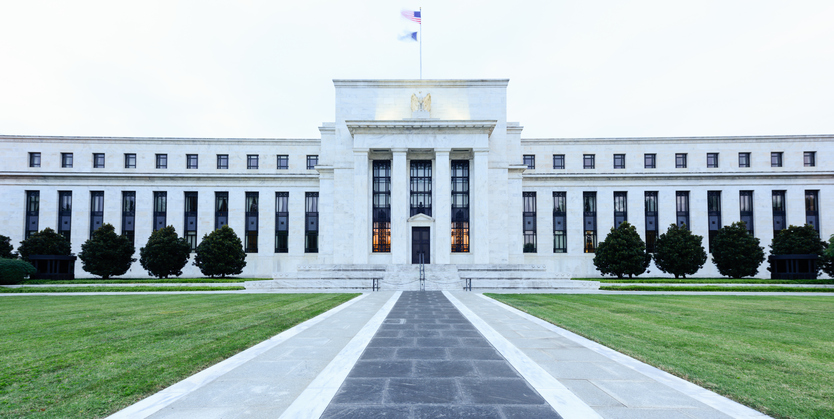When the Fed sits down for its two-day meeting this week, members will be gathering in the shadow of President Trump’s recent statement that he “was not thrilled” with the Fed raising interest rates. The members will not be influenced by those remarks, as they take seriously their responsibility to resist political pressure and conduct policy independently. To be sure, Trump’s comments – which violated the norm that presidents should respect the Fed’s independence – were inappropriate. They were not, however, as unprecedented as media reports suggest. Trump is far from the first president to publicly criticize the Fed or try to influence monetary policy.
Before exploring the historical antecedents, it’s important to understand the inherent tension between the White House and the Fed. The Fed strives to maintain low inflation as a foundation for sustained healthy economic performance. The president, meanwhile, thrives on robust growth and job creation – and fears the political fallout from a poor jobs market.
The Fed raises rates as a reflection of strong economic growth and tightens monetary policy in the face of undesired inflation pressures. Presidents may view the central bank’s rate increases as undercutting their agenda and promises of stronger growth. History suggests that many chief executive don’t understand monetary policy and put a higher priority on maximizing short-run employment than keeping inflation low. As William McChestney Martin (Fed Chair from 1951-1970) once explained, the Fed “is in the position of the chaperone who has ordered the punch bowl removed just when the party was really warming up.” That responsibility invited presidential hostility long before Donald Trump came on the scene.
Martin himself faced a major conflict with President Lyndon Johnson in 1965, when the Fed was raising interest rates in response to the inflationary pressures and budget deficits that accompanied the Vietnam War buildup. After abandoning the idea of removing Martin from office (the White House Counsel concluded that would be illegal), Johnson invited Martin to his Texas ranch – where, according to Martin, a heated argument involved the president literally pushing him against a wall to make his point. It is unclear whether that had any impact on the Fed’s monetary policy. The Fed eased rates in 1966 as the economy slumped and did not raise them as inflation pressures mounted in 1967, deferring to the fiscal restrictiveness of the Vietnam War tax surcharge (a 6 percent rate on individual and corporate income). Only in 1968, with inflation pressures mounting (and Johnson on his way out of office), did the Fed begin raising rates aggressively.
In the late 1980s and early 1990s, President George H.W. Bush had an ongoing public conflict with Fed Chair Alan Greenspan, which began when Fed rate increases generated a decline in inflation-adjusted money supply and an inverted yield curve, contributing to the mild 1991 recession. With his 1992 campaign dogged by a disappointingly slow recovery, Bush believed that the Fed was keeping monetary policy too tight. In later years, the 41st president would cite Greenspan as a key reason why he lost the election (though any fair accounting would also note Bush’s violation of his “no new taxes” pledge).
President Nixon used the Fed in an even more dangerous way: as a tool for the White House’s short-term political objectives. Nixon met frequently with Fed Chair Arthur Burns during the 1972 campaign. Burns subsequently held off on raising rates despite a booming economy and underlying inflation pressures (which Nixon attempted to tame through wage and price controls). The country paid the price of Burns’ politically-motivated monetary policies with rising inflation and soaring unemployment later in the decade.
Fortunately, these transgressions are not the norm, and most presidents respect the Fed’s independent role. Of course, the relationship tends to be easier when underlying economic fundamentals are favorable. During the Clinton Administration, for example, Greenspan and Treasury Secretary Robert Rubin held regular breakfast meetings. Clinton didn’t mind Fed rate hikes amid robust economic and financial market conditions.
Some presidents deserve special praise for giving the Fed space to do its job. Jimmy Carter replaced Fed Chair G. William Miller in 1979 amid a faltering economy and rising inflation, and chose Paul Volcker as his successor knowing that Volcker would have to raise rates aggressively to lower inflation. Carter’s successor, Ronald Reagan, reappointed Volcker and gave him full public support, even as the country endured a painful recession to wring the inflation out of the system. Both presidents deserve praise for allowing the Fed to pursue its disinflationary policies free of political pressure.
While Trump thus far seems to have more in common with presidents who’ve tried to strong-arm the Fed, there are hopeful signs from within the administration. Following the president’s recent criticism, The White House issued a quick retraction noting that Trump supports the body’s independence. Treasury Secretary Steven Mnuchin even made a public statement that higher rates are appropriate when the economy is experience strong growth.
An independent and credible Federal Reserve is critical to healthy economic performance, and the administration was right to walk the comment back. Thankfully, Fed Chairman Jerome Powell and the other Fed members are committed to the institution’s autonomy and can be relied on to tackle the prospect of inflation in pursuit of healthy sustainable economic performance without regard to political pressure. Trump would be wise to allow the Fed to do its job without impediments – and to acknowledge the central bank’s critical role and the benefits of its independence.
Mickey Levy is chief economist for the Americas and Asia at Berenberg Capital Markets, LLC and a member of E21's Shadow Open Market Committee (SOMC). The views expressed in this column are the author’s own and do not reflect those of Berenberg Capital Markets, LLC.
Interested in real economic insights? Want to stay ahead of the competition? Each weekday morning, E21 delivers a short email that includes E21 exclusive commentaries and the latest market news and updates from Washington. Sign up for the E21 Morning Ebrief.
